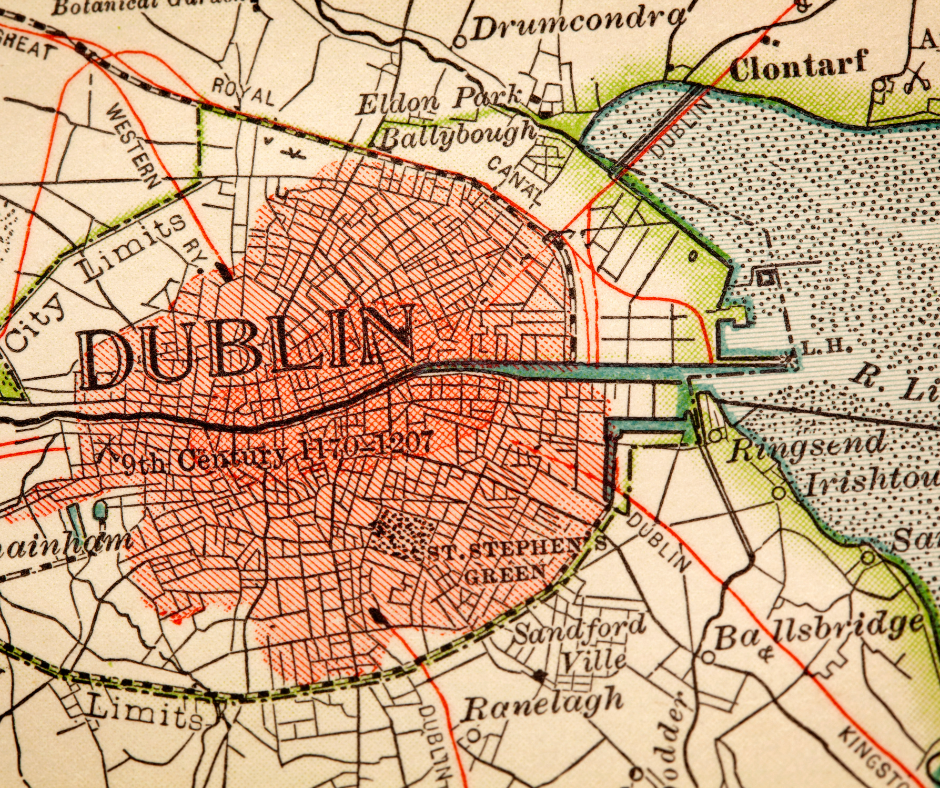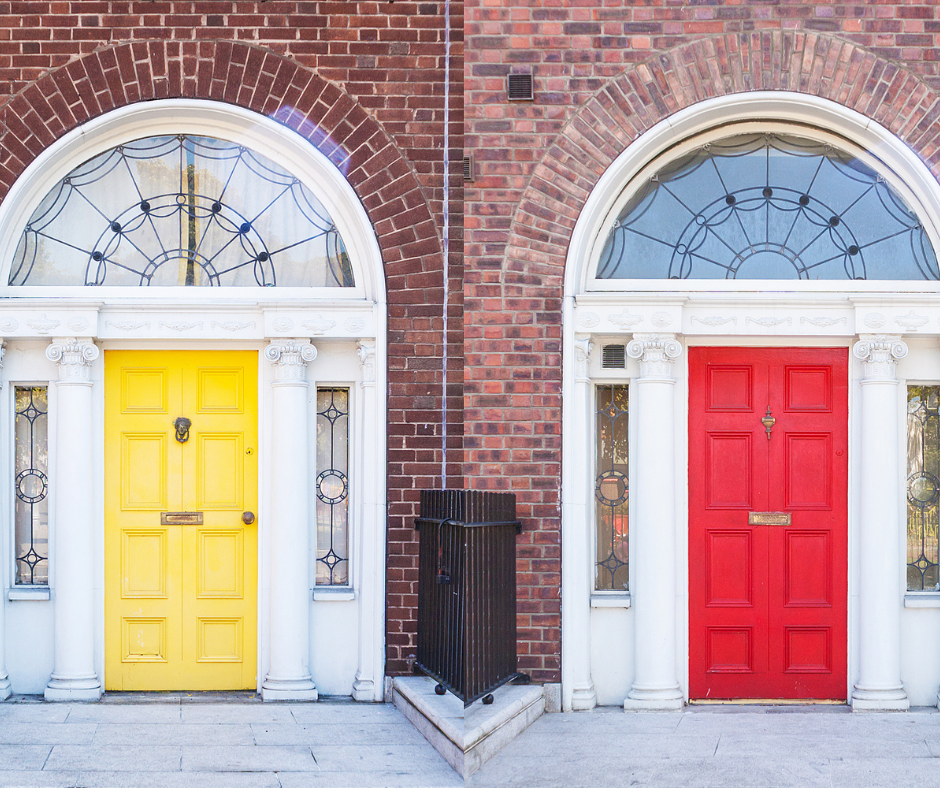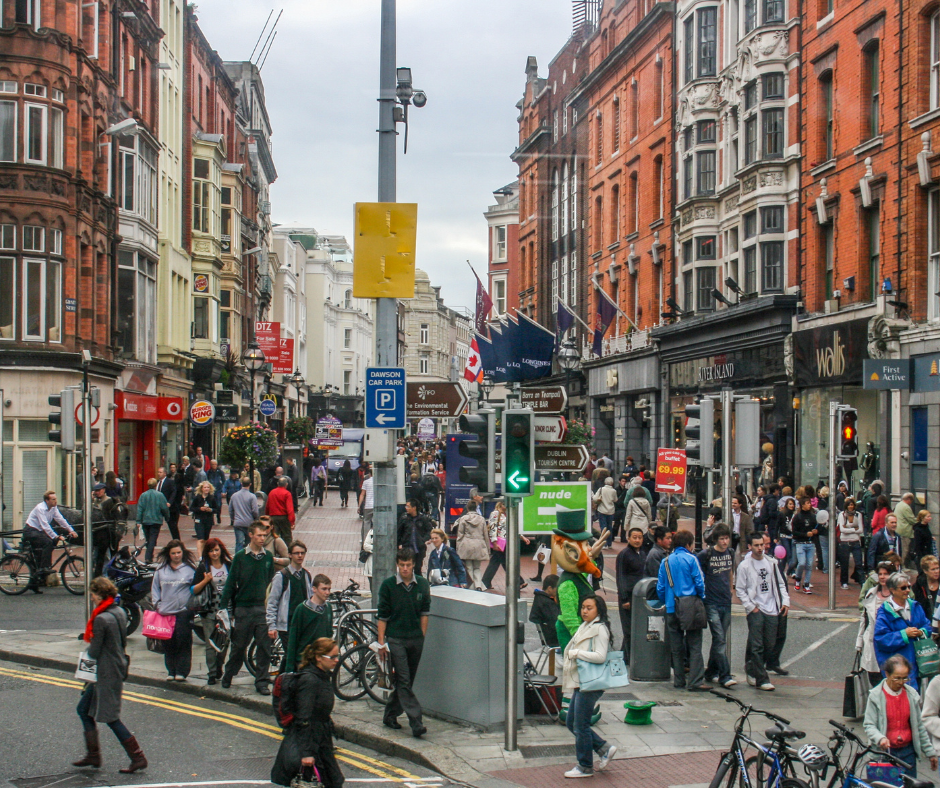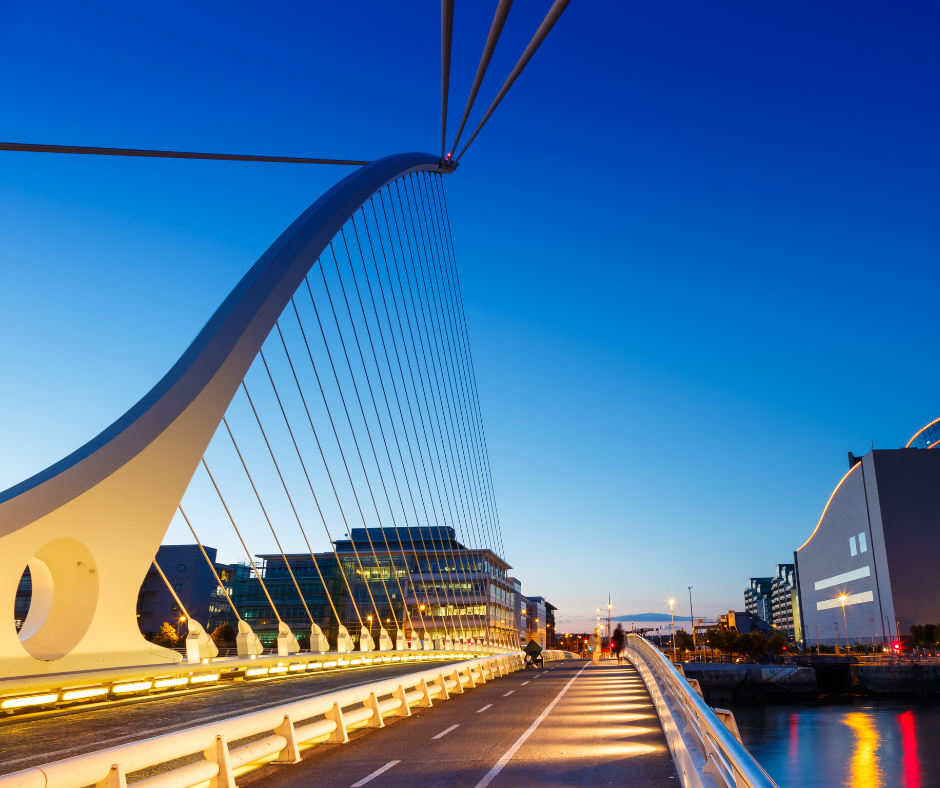What is Dublin About?
Dublin is a vibrant, warm, and welcoming city, attracting people from all over the world for work and study. It’s known for being international and generally safe, though like any city, it's wise to be cautious in certain areas at night.
With a population of about 1.285 million, Dublin strikes a good balance—it’s not overwhelmingly large, but it has plenty to offer everyone. The city is also fortunate to have good air quality compared to other European capitals.
Nature is always within reach, even from the city centre. Phoenix Park, the largest urban park in any EU capital, is ideal for outdoor activities. Coastal escapes like Bull Island, Killiney Beach, and the scenic Dublin Bay are easily accessible, along with charming commuter towns. For hiking enthusiasts, the Dublin and Wicklow mountains offer trails and stunning views of Ireland’s lush landscapes, perfect for weekend adventures.

Dublin’s Neighbourhoods
The River Liffey divides Dublin into two: the Northside, traditionally working-class, and the Southside, known for being more residential. However, this distinction is not absolute.
The city is evolving, with several neighbourhoods undergoing extensive gentrification. Areas like Grand Canal Dock and the North Docklands have seen significant transformation, while others, like The Liberties and Phibsborough, are in the midst of this process.
Dublin expanded rapidly during the Celtic Tiger years, turning former villages like Blanchardstown and Tallaght into thriving city districts. Each neighbourhood has its unique character, and finding the right one for you involves exploration—get advice, walk around, and feel the local atmosphere.
Popular Southside areas for professionals include Ranelagh, Rathmines, and Dundrum, while on the Northside, Phibsborough and Drumcondra.
Finding a Place to Live
Finding accommodation in Dublin can be challenging, and many say it’s easier to secure a job than a home. However, once housing is sorted, you can truly start enjoying what the city has to offer.
If you’re unsure about committing to a long-term lease right away, consider starting with a Hosting Agency. Living with a local can provide valuable insights into the city and give you time to find the perfect place without pressure. Many people end up forming lasting friendships with their hosts and continue living with them beyond the initial period.

Public Transport and Cycling
We’ve written another blog covering public transport in detail, but in short: when searching for accommodation, always check the transport options and consider commuting times during rush hour.
The Luas (tram), DART (Dublin Area Rapid Transit), and commuter trains are the most reliable, with consistent travel times. Buses are frequent, but traffic can be unpredictable, and buses can sometimes be too full to board during peak hours.
For public transport, the Leap Card is a convenient, cash-free option for buses, trams, trains, and DART. It’s easy to top up at stores or online, and fares are cheaper with it. For example, a 90-minute adult journey costs €2, while students pay €1.
Dublin has also invested in cycling infrastructure, and biking is a healthy, eco-friendly way to get around. Just remember to stay safe—wear a helmet, be visible, and follow traffic rules.

Socializing and Meeting People
Socializing in Dublin is easy with plenty of options. The pub scene is a staple of Irish culture and a great way to meet people. Whether it’s after-work drinks with colleagues or casual meetups, Dublin’s pubs are lively and welcoming.
If pubs aren’t your thing, Dublin has a thriving music and arts scene, as well as festivals and stand-up comedy, which can also be a great way to improve your English while experiencing Irish humour and culture.
Meetup groups and volunteering are excellent ways to connect with like-minded people. Joining a sports club, gym, or attending classes like yoga are also popular avenues for socializing.

Irish Culture and Etiquette
Some key values of Irish culture include friendliness, humour, and a strong sense of community. People in Dublin are generally very chatty, helpful, and approachable.
A few tips on social etiquette:
Queuing is important, and skipping the line is considered rude.
Tipping is common in restaurants, bars, and coffee shops.
Casual conversations, especially about the weather, are a favourite local pastime!
While English is the spoken language in Dublin, if you’re interested in languages, you might want to learn a bit of Irish (Gaeilge), Ireland’s indigenous language. It’s quite different from most languages, but locals appreciate the effort.

In Summary
Dublin offers a fantastic quality of life, a rich culture, and a welcoming atmosphere. There’s something for everyone, from nature and outdoor activities to social scenes and cultural events. While finding accommodation can be a challenge, starting with a Hosting Agency can ease the transition and help you settle into the city.
Embrace the local culture, make the most of your time, and enjoy all that Dublin has to offer!
If you are looking to rent a place anywhere in Ireland, Hosting Power has you covered! Book your room now: https://app.hostingpower.ie/